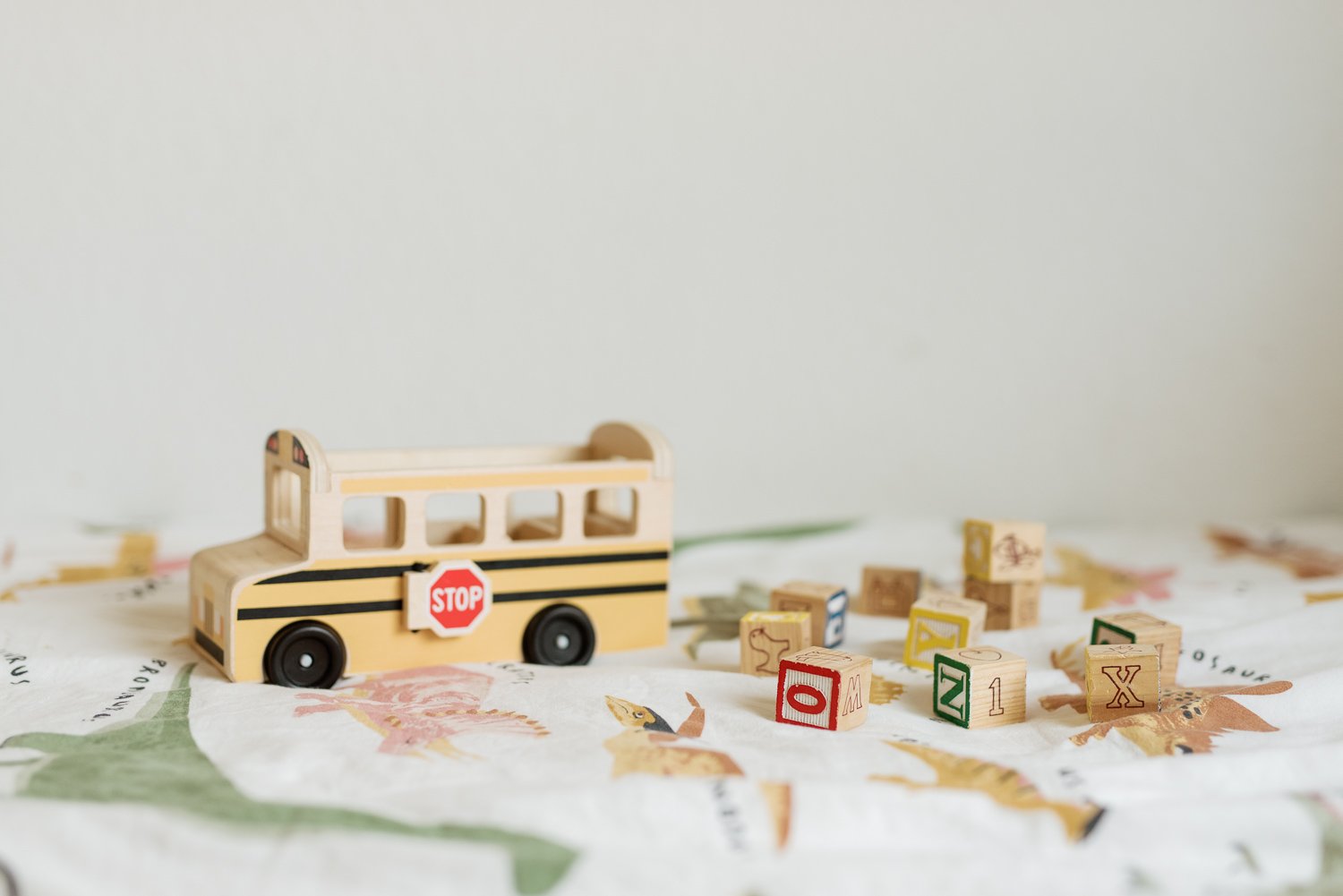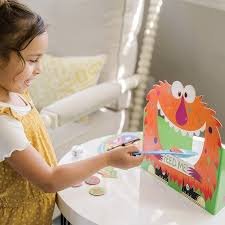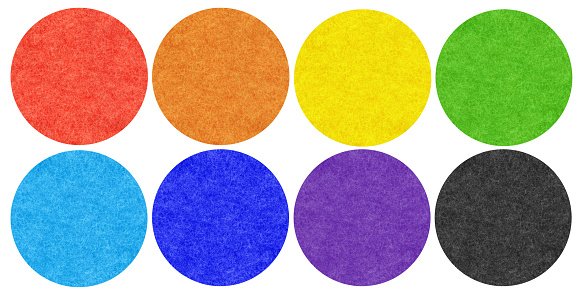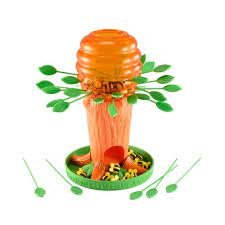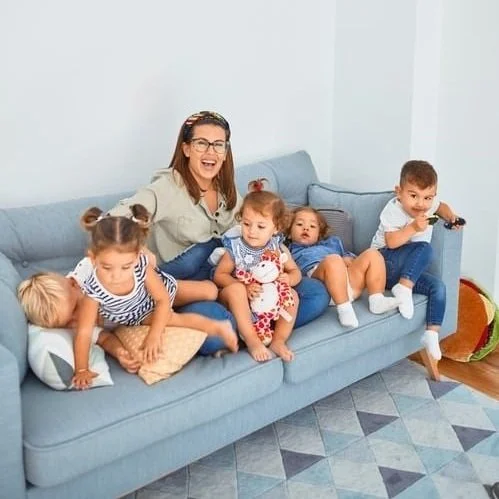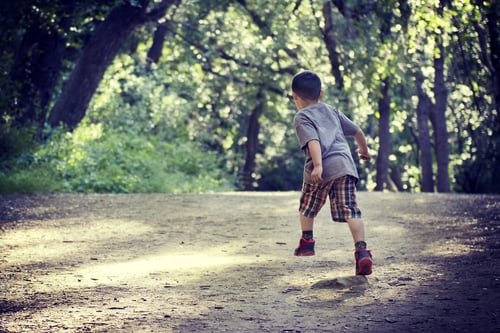12 Perfect Games for Toddlers Ages 3 and Up
Three years old is such a fun time in development. At this age, language is becoming more complex, executive functioning abilities are starting to pick up, and play skills are expanding. And lots of great games for toddlers ages 3 and up beautifully support growth and development in these areas. Keep reading for our top 12 favorite games for toddlers at this age!
Why Games Are Great for 3-Year-Olds’ Development
By age three, a lot of little ones have or are working on, the skills needed for successfully engaging in structured games. Things like following two-step directions (ex: Get the bowl and put it on the table), understanding sequence concepts like “first” and “next,” and strengthening their executive functioning—which is one of those skills we take for granted in our day-to-day lives as adults, but that is SO impactful. (More on executive functioning below!)
At three years old, toddlers are also starting to understand core academic concepts like colors, shapes, and quantities. One of the main reasons we love games for toddlers around age 3 and up is that so many games incorporate these concepts while giving toddlers the chance to hone the other developmental skills we mentioned above.
How Games Support Toddlers’ Executive Functioning
‘Executive Function’ refers to a group of skills that, when combined, allow us to focus on more than one thing at a time while avoiding mistakes, making quick and solid decisions, and being flexible enough to incorporate new information and change our plans as needed—all without becoming overwhelmed, frustrated, or making rash decisions. In other words, it’s a BIG deal when it comes to successful ‘adulting’ later in life! (Remember, at age 3, it’s not that your toddler is going to demonstrate perfectly executed executive function, it’s just that games are a great way to practice implementing these skills.)
The building blocks of executive functioning start to develop when children are very young, even as young as three years old! And it’s important that they continue to build over time because strong executive functioning skills help children a LOT in adolescence and adulthood.
Executive functioning is such an important and complex part of our cognition that the Center on the Developing Child at Harvard University considers it the air traffic control system of our brains. In an article titled ‘What Is Executive Functioning? And How Does It Relate to Child Development?’ they explain that having executive functioning skills means “being able to focus, hold, and work with information in mind, filter distractions, and switch gears,” which is “like having an air traffic control system at a busy airport to manage the arrivals and departures of dozens of planes on multiple runways.”
We love that games not only support the foundational skills of executive functioning that toddlers are likely to already have, but that they can also push our toddlers to develop new, key skills that they’ll continue to use as they grow.
Top Games for Toddlers Age 3+
Okay, by now you can probably tell that there’s really no downside to playing games with toddlers ages 3 and up—or even younger! But which games to play is still a big question. After all, not every game is created equal in terms of development.
The 12 games for toddlers ages 3 and up that we’ve listed here are our favorites because they blend developmental benefits with family fun! But keep in mind that not every game you play with your toddler needs to be developmentally perfect. It’s okay to play games just for fun, too! Or, games that aren’t on this list, like games your family has invented together. Odds are that most games will be at least a little beneficial for your toddler. These are just our personal favs!
Related: 10 Communication Games for Babies & Toddlers
Related: Best Games for Toddlers & Preschoolers
#1 I Spy
As parents, we love that I Spy requires no setup and can be played anywhere! It’s the perfect game to pull out of your parenting toolkit while you’re waiting somewhere, like in the grocery store line or at the doctor’s office.
Simply say, “I spy with my little eye something that ____” and describe what you see without naming it. Then, let the other person guess until they get it right! Remember, learning to play this game, and then playing it, isn’t a test, so give them a lot of help and support in the beginning.
As speech therapists, we love that there are SO many developmental benefits to playing I Spy with your toddler.
Developmental Benefits:
Turn-taking
Regulation
Vocabulary building (as they search for new words to describe what they’re seeing)
Staying present and focusing on what they see
#2 Freeze Dance
We love freeze dance for those moments when you need to get wiggles out but can’t go outside. It’s simple! You play music, everyone dances, and when the music stops, you all have to freeze. You can play a version where the last person to freeze is out, or you can just all keep playing and try again.
Freeze dance is a great game for building those executive function skills, too. These skills are so important, but aren’t innate, so they need to be intentionally fostered. Thankfully, working on them with your child can be as easy as playing simple games!
Developmental Benefits:
Impulse control
Planning ahead
Staying focused
#3 Red Light Green Light
Red Light Green Light is also fantastic for building executive functioning, because, like Freeze Dance, it requires impulse control, planning, and focus.
To play, simply decide on a starting line and a finish line. When you say “Green light,” players move towards the finish line. When you say Red light,” the players have to stop quickly! The first person to the finish line wins.
#4 Feed the Woozle
We love that Feed the Woozle is a cooperative game, where everyone works together to feed the Woozle silly snacks from a spoon. Whenever we can, we opt for cooperative games for toddlers around age 3, because they offer a bit more support than games with clear-cut winners and losers.
Developmental Benefits:
Emotional intelligence
Encouraging others
Cooperating for a collective goal
Problem-solving
Motor skills
#5 Racoon Rumpus
Racoon Rumpus is a memory and matching game. The premise is that raccoons have raided your closet, and now they’re having a party! Your job is to help them get dressed. Whoever has the most costumes at the end wins.
Developmental Benefits:
Turn-taking
Following rules
Academic concepts like counting, colors, and shapes
#6 Matching Color Game
Color Matching is great for working on colors and learning how to follow the rules of a game. To play, simply put colored felt circles down on the ground. Then, roll a colorful die, and have everyone RUN to the color it lands on as quickly as they can. If you don't have a dice with colors, you can make one or just shout out the colors as your child runs to the color.
Developmental Benefits:
Turn-taking
Rule following
Impulse control
Practicing colors
#7 Snug As A Bug In A Rug
Snug As A Bug is another cooperative game, where you work together to beat the stink bugs. Because it incorporates matching, it’s a great way to introduce academic concepts, like colors, shapes, and numbers. You can either continue through each level (each level adds more challenges) or you can simplify the game a bit. It’s really fun and has so many language benefits!
Developmental Benefits:
Academics (colors, shapes, and numbers)
Emotional intelligence (cooperation, encouragement)
Planning ahead
Learning new words and concepts
#8 Honeybee Tree
If you loved Kerplunk growing up, then you’ll love Honey Bee Tree! In this game, instead of just pulling straws, you pull leaves from the tree. And if you’re not careful, you’ll wake the sleeping bees who all come tumbling down! Just like with Kerplunk, the player with the least amount of marbles—we mean, bees!—in their little tray wins.
Developmental Benefits:
Fine motor
Counting
Turn-taking
Practicing patience
Executive functioning skills
#9 The Floor is Lava
The Floor Is Lava is a “new to us” game that has proven to be a blast! The description is in the name–pretend the floor is lava and use the spinning color wheel to jump to the target color. The last person standing wins!
We love that you can include the whole family in this game–Katie has definitely challenged her preschooler to a game, jumping to lava tiles while holding her nine-month-old, all while her six-year-old spins the color wheel! Enhance the experience even further by streaming the song The Floor is Lava, by one of our fellow speech-language pathologists who’s part of the kid’s band Soks!
Developmental Benefits:
Practicing colors
Taking turns
Impulse control
Strategic thinking
#10 Kids on Stage
Kids on Stage is a game of charades where players take turns acting out animals, objects, and actions while the other players guess. It’s a fun, creative way to grow confidence, develop communication skills, and encourage social interaction and creative thinking.
Developmental Benefits:
Emotional intelligence
Social skills
Communication skills
Creativity
#11 Shadowlands
Inspired by a great episode from Bluey, one of our favorite shows for kids. In the episode, also called Shadowlands, Bluey and his sister Bingo find out that following rules makes a game more fun! This is a fun and easy game to play outside. Just pretend the sun is like the ocean, and you can’t step on the ocean! The goal is to stay in the shadows by jumping from one to the next. You can definitely add pretend play components to this, and you don’t have to have a winner if you don’t want to!
Developmental Benefits:
Creativity
Imaginative play
Rule following
#12 Zingo
Zingo is a bingo game with a twist—because instead of trying to make a line of numbers, you’re looking for labeled photos. This game was designed for early and pre-readers, so it’s perfect for building vocabulary, and it provides opportunities to practice basic reading skills. We also like that it has two levels, so it can grow with your child. On the Zingo cards, the green side is less competitive and the red side is a bit more challenging.
Developmental Benefits:
Early literacy skills
Matching skills
Turn-taking
Keep The Good Times Rolling!
Three years old is such a great time to be working on executive functioning skills, continuing to improve language skills and social abilities, and even introducing academic concepts. And, all these developmental benefits don’t have to feel like work for your child! They can be gained in fun ways–through age-appropriate activities for toddlers ages 3 and up, like games, storytimes, and even songs and rhymes.
Looking for more ways to keep your toddler entertained and educated? Check out our Songs + Stories membership! When you join, you get access to a new songs and rhymes class each month, and a new storytime video—read by a speech therapist—every week. Click the link below to download a free song and story video, and see if it’s something your toddler is into!

